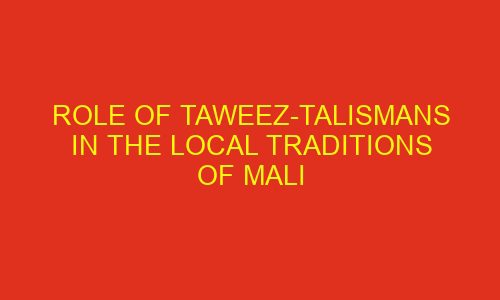Humans, whether in Mali or anywhere else in the world need ways and means to protect themselves from the bombardment of negativity or from all manner of dangerous things and illnesses so Mali’s local traditions are an amazing extension of what humans do to survive? There are a lot of different cultural practices that exist in Mali which still reflect what people use. For example, charms to protect yourself or heal a person on your behalf, who has beneficial properties like making you stronger, thinner, smarter and more beautiful. These items are either worn around the neck or placed near an endangered part of your body such as the eyes or the joints. An example of this is the “jogo” or amulet made from glass, brass, copper, gold and silver that is used to protect against the evil eye. There are also amulets made of stone and wood in many shapes and colors which women believe to enhance their beauty by attracting good luck.
The people of Mali grew up with incredible traditions for the amulet called taweez & talisman. Taweez is a form of amulet that is used for achieving mystic benefits for the wearer. It comprises rules, words, or sentences taken from Hadith (oral traditions) of Prophet Muhammad. It is sometimes written on paper, parchment, or cloth, and worn as an amulet. The use of amulets in Islam is controversial. Some scholars discourage their use while others allow them in certain circumstances such as during illness.
This artefact is believed to bring good luck, health, & a binding relationship between the wearer and Allah. The amulet is worn on the waist, arms or neck in various ways, depending on the wearer’s age & sex. Before employing a taweez, person should know its attraction or the purpose for wearing it and be confident about relying on Allah for their protection or needs in life.
Some Malians believe,
– when someone is blessed with taweez they tend to prosper
– these items brings fortune, health and love into the life of one who is wearing it
– they are cherished as a secondary goal of faith in Islam.
The locals not only use taweez talismans as fabulous amulets, but they also use them as prayer mats and decorations as we can observe in many mosques in the regions throughout Mauritania. This shows that Shia Muslims from West Africa created their own interpretations of Islam’s taweez talismans to meet more needs. and requirements of their spiritual lives.
One of the Mali tribes who rely strongly on talisman and symbols to ensure good health is called Dogon tribe or Kanes people denoted by their clothing and headgear that consists of a red cloth wrapped around their heads. and bodies
Traditionally it is usual for Muslims to have taweez-talismans made by ulema who are very well educated and socially respected. Amulets in Busk Mali come with varying social consequences: they’re given as gifts to family, friends and loved ones and they are also brought back from pilgrimages as souvenirs of religious success.
The popularity of taweez-talismans is fueled by demand, low prices, and local legends, which are rooted in both Islamic principles as well as African culture and religion. The main difference between a taweez and a talisman is that a taweez has to be recited by the owner, whilst a talisman can be used without any specific instruction. These can also be used to gain advantage in contracts, difficulties and disputes as well so that justice always sides with the individual or the person who possesses such a stone or amulet.
Taweez and talismans are used mainly at this traditional market in the city of Timbuktu, Mali. With a look that is not too different from contemporary amulet-sellers, the women clustered here sell taweez – amulets carved on wood or leather – as well as talismans made of clay and other materials. These female traders at this ancient city feel a certain connection to their trades.

